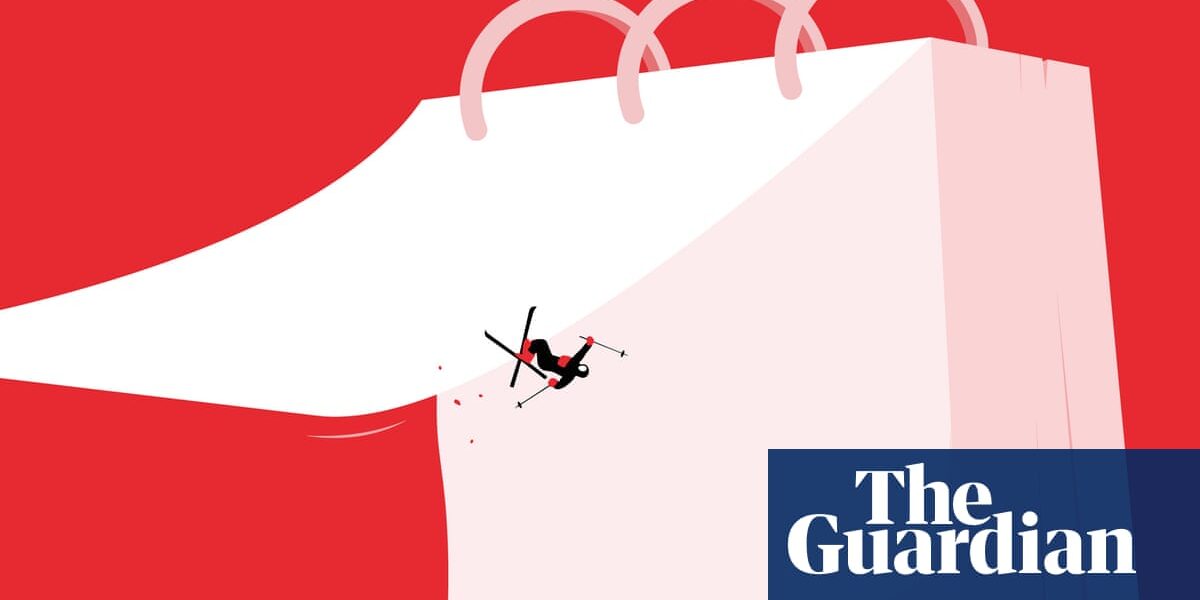
I
After reading my fourth article on the top children’s wellies, it occurred to me that I could be using my time on this planet more wisely. Numerous websites use a five-star system to rank these boots, similar to how films, albums, and restaurants are rated. While these ratings are subjective and can change easily, they hold significant weight and influence. A single negative review from an unhappy customer can greatly harm a small business. Personally, I would not purchase a three-star welly, although it is unclear how much quality one can truly expect from a rubber boot.
According to psychologist Barry Schwartz, when faced with numerous choices as a consumer, people tend to react in two ways. Those who are “satisficers” are content with selecting a satisfactory option and typically do not spend their leisure time researching numerous product reviews. On the other hand, “maximisers” feel pressure to make the absolute best choice and may struggle with decision-making when presented with a wide range of options. In fact, having more choices can lead to increased difficulty in decision-making and a higher chance of experiencing regret. While being a maximiser may have its advantages in a professional setting, they often report lower levels of happiness and are more susceptible to negative emotions such as depression and social comparison.
Regrettably, the abundance of online rankings for categories such as “the top doormats of 2023” or “the best toilet brushes” implies that we live in a society of constant maximization. And where does it end? There are countless methods to evaluate your life and decisions, and to fall short. You can keep track of your steps, heart rate, and sleep patterns, monitor your weight and BMI, evaluate your social media activity, and become fixated on performance metrics at your job. We often treat these measurements with a level of importance they do not deserve: the 10,000 steps goal is arbitrary, your BMI is an imperfect indicator of your health, and online approval does not determine your social value.
However, the idea of maximizing has permeated our existence in nearly every way. It influences our views on our social and romantic connections: in a highly connected society, which relationships are worth “investing” in? Being told to “settle” is seemingly one of the worst things one can hear – unless it’s discovering that your partner has settled for you. In love and all aspects of life, it’s likely best to be a satisficer and accept imperfections.
Many discussions on the topic of maximizing, as well as other related concepts like self-improvement and perfectionism, tend to revolve around our personal reactions. However, by examining our interactions with others, we can understand why the pursuit of being the best and having the best is ultimately a collective issue, a shared misconception.
In his book The Good-Enough Life, published in 2022, Avram Alpert asserts that the pursuit of personal greatness, fueled by unequal social systems, is a major source of issues plaguing our world. This includes overconsumption, environmental degradation, stark inequalities, and increased unhappiness as individuals constantly compete against each other. Alpert advocates for dismantling these hierarchies and shifting focus from striving for a top spot to using our talents to enrich our own lives and the lives of others. He envisions a society where traits like kindness and empathy are just as highly valued as scientific or creative brilliance.
Currently, it may seem unlikely that such a world could exist. In 1965, CEOs in the US were paid 21 times more than the average worker; now they are paid 344 times more. We celebrate business leaders, but their success is always a result of a group effort, with people of diverse skills and talents working together creatively. The same applies, although it may not be as apparent, for any significant accomplishment or breakthrough in politics, science, the arts, or sports. If we truly acknowledged the support and structures that enable individual greatness, power and status would be distributed differently. It can be both humbling and empowering to remember that our successes and failures are not solely our own.
The reason I spent a significant amount of time searching on Google for the best children’s rain boots had nothing to do with the actual boots. Motherhood is the aspect of my life where I feel my shortcomings and inadequacies most deeply. I cannot shake the belief that my children deserve a flawless mother, and that I will never be enough for them. Ironically, being a parent, just like any other social connection, love, or caregiving, goes against the idea of progress and perfection. Being a good parent, just like being a good friend, is not about achieving certain goals, but simply being present, kind, and true to oneself. We can use our relationships with others to reinforce our perfectionist mindset, which can also be passed on to our children. Alternatively, we can try to break this cycle. Even if we cannot fully accept our own imperfections, we can remind those around us that they are more than just their accomplishments.
As we enter the new year, you may be experiencing feelings of remorse. You may have made a commitment to increase physical activity and improve eating habits, or to pick up a hobby that will enhance your personal growth, or to strive for a promotion at your job, all in pursuit of becoming the best version of yourself. However, before making another new year’s resolution, which can often be a form of self-blame disguised as a positive goal, consider questioning why you believe that you need to change. What if you are already enough?
Further reading
The Good-Enough Life by Avram Alpert (Princeton, £15.99)
The idea of perfection: The Strength of Adequacy in a Society That Constantly Seeks More written by Thomas Curran (Cornerstone, £22).
The book “Stand Firm: Resisting the Self-Improvement Craze” by Svend Brinkmann (published by Polity, priced at £12.99) discusses the importance of standing firm against the pressure to constantly improve oneself.
Source: theguardian.com



